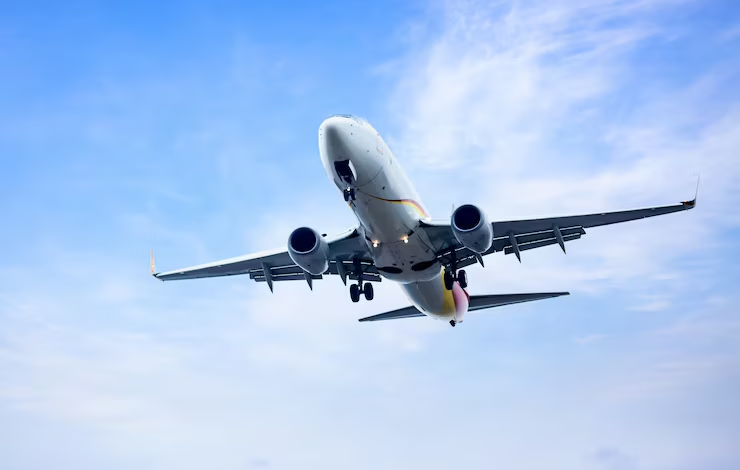20 Unwritten Rules About Aviation

Aviation is one of the most fascinating and highly regulated industries in the world. While official rules and procedures govern much of what happens in the skies, there are also countless “unwritten rules” that pilots, flight attendants, passengers, and aviation enthusiasts instinctively follow. Here are 20 of those unspoken guidelines that make aviation smoother and more enjoyable for everyone:
1. Safety Always Comes First
In aviation, safety is non-negotiable. Whether it’s a delay for technical checks or a strict enforcement of seatbelt rules, understanding that safety trumps convenience is an unwritten rule everyone should respect.
2. Follow Crew Instructions Without Argument
Flight attendants and pilots are not just there to serve—they’re responsible for your safety. When they give instructions, follow them promptly and without debate.
3. Be Patient During Boarding and Disembarking
The rush to board or leave a plane doesn’t help anyone. Aviation professionals and seasoned travelers know that patience during these processes goes a long way in maintaining order.
4. Never Joke About Security or Safety
Jokes about bombs, hijacking, or any kind of threat are never acceptable in aviation. These remarks can lead to serious consequences, even if made in jest.
5. Respect Personal Space on Flights
Seats and spaces on planes are tight, so avoid leaning too far back, invading armrests, or encroaching on someone else’s space unnecessarily. A little courtesy can go a long way.
6. Keep Communication Clear and Concise
Pilots, air traffic controllers, and crew members rely on clear communication to ensure safety. Using jargon, slang, or unclear instructions is a big no-no in aviation culture.
7. Avoid Unnecessary Noise in the Cabin
While there’s no rule against talking or using devices, keeping noise levels down is considered courteous. Loud conversations or music can disturb fellow passengers, especially on long-haul flights.
8. Treat Cabin Crew with Respect
Flight attendants work hard to ensure your comfort and safety. Showing them kindness and respect is an unspoken expectation among frequent travelers.
9. Don’t Hold Up Security Lines
Be prepared at security checkpoints—have your documents ready, remove prohibited items, and follow instructions. Efficiency here helps everyone.
10. The Aisle is Not a Gym
Stretching is important on long flights, but the aisle is not the place for yoga or elaborate exercises. Keep movements simple and avoid blocking the path for others.
11. Window Shades Follow the Group Consensus
While technically your window seat means you control the shade, it’s courteous to consider the group. Lower shades during movies or raise them when the crew asks for visibility.
12. Turbulence is Normal—Don’t Panic
Turbulence is a routine part of flying, not a cause for alarm. Trust the pilots and aircraft systems to handle it. Panicking or alarming fellow passengers is unnecessary.
13. Don’t Recline Your Seat During Meals
Reclining your seat when the person behind you is eating can ruin their meal experience. It’s an unwritten rule to stay upright during food service.
14. Carry-On Etiquette Matters
Be mindful of carry-on luggage. Place bags efficiently in overhead bins and avoid taking up unnecessary space. Large items should go in first, leaving room for smaller items.
15. Avoid Unnecessary Complaints
Delays, turbulence, or in-flight service limitations are often beyond the crew’s control. Complaining about such issues does little to improve the situation.
16. Seat Swapping Requires Permission
Switching seats might seem harmless, but it’s courteous to ask the cabin crew and affected passengers before moving around the cabin.
17. Don’t Ignore the Seatbelt Sign
When the seatbelt sign is on, it’s there for your safety. Ignoring it or wandering around during turbulence is unsafe and disrespectful to crew instructions.
18. Be Punctual
Arriving late to the gate disrupts schedules and can delay flights. Aviation runs on tight timelines, so punctuality is an unspoken rule for passengers and crew alike.
19. Pilots Follow the Chain of Command
In the cockpit, hierarchy is respected. The captain has the final say, and effective teamwork relies on everyone understanding their roles and responsibilities.
20. Flying is a Team Effort
Whether it’s ground crew, air traffic controllers, pilots, or flight attendants, aviation relies on collaboration. Mutual respect and cooperation among all parties ensure smooth operations.
Aviation is a marvel of human ingenuity and cooperation, but it also relies on countless unwritten rules that enhance the flying experience. By adhering to these guidelines, passengers and professionals alike contribute to safer, more efficient, and more enjoyable air travel.




